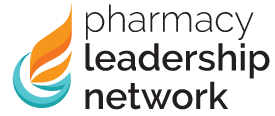 Director, Pharmacy Practice Residency Program in Primary Care
Director, Pharmacy Practice Residency Program in Primary Care
Assistant Professor of Clinical Pharmacy
USC School of Pharmacy
Los Angeles
I joined CPhA’s Leader Development Institute (LDI) to develop leadership skills that I constantly felt lacked of while taking a lead on a clinical pharmacy service project and to re-energize myself with new inspiration and motivation. With many barriers that came with launching this project, I realized that playing a victim was not making the project to advance and to grow.
Throughout this project, I also felt I was alone and felt the burden of carrying this big project. Thus, I needed a time to review my core strengths and to re-start fresh with different perspective. LDI was the perfect opportunity for me to reflect and re-evaluate myself on a current situation and to bring new approach to finish my project.
Over several LDI sessions, I saw unexpected things happen. I found myself being open to complete strangers and building relationships with many participants, especially my pod members. My pod members were very flexible and were available when I needed their support. They made me feel more connected to LDI and embraced me without any judgments. This was a pleasant surprise as being close to my pod members was not what I expected to get from LDI. Through LDI sessions, I learned more about my colleagues more at a personal level and developed friendships. I realized that building a good relationship is a key to a success in any profession, and now I focus more on building good relationships with anyone I work with than before.
With what I learned from LDI in mind, I am starting a project to incorporate pharmacy residents into a medical resident run clinic. It is always easy to just have pharmacy resident to shadow a pharmacy faculty at the clinic without disrupting any workflow of the clinic. However, I thought it would be more meaningful experience for pharmacy residents if they were treated as one of clinic members and take ownerships on their own patients. This meant pharmacy residents having their own appointment system and building their own set of patients, referred by medical residents, and to have team case discussions among them, under supervision of pharmacy faculty and attending physicians. I chose this project to be my LDI project because all the frameworks that LDI taught me really applied here. Pitching this idea to the medical director who usually gets tons of project requests, pharmacy director, and clinic nursing director who is in charge of clinic flow and assigning medical assistants to a provider requires a lot of patience and understanding and I’m utilizing various skills and tools I learned from LDI to make sure they see my vision of this project. Currently, the clinic medical director and I, along with the pharmacy director, are drafting a proposal before we formerly present to the regional directors and medical residency directors. I am confident that this project will run smoothly, unlike my other project prior to LDI, mostly because LDI helped me grow as an effective leader. More importantly, I now have expanded network and friends that I can seek help from, and I no longer think I am alone in this project.

